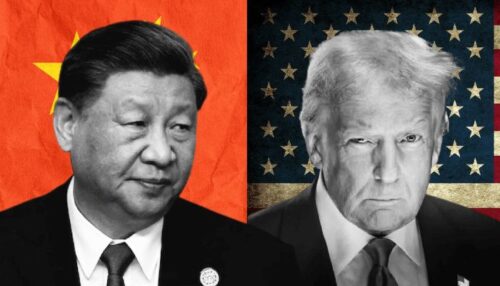In a swift response to new U.S. tariffs, China has announced a fresh round of duties targeting American imports, escalating trade tensions between the world’s two largest economies. The move comes after President Donald Trump imposed a 10 percent tariff on all Chinese goods entering the U.S., a decision that took effect on Tuesday following weeks of warnings.
China’s retaliatory measures include a 15 percent tariff on U.S. coal and liquefied natural gas (LNG), along with a 10 percent duty on crude oil, agricultural machinery, and large-engine vehicles. These tariffs are scheduled to take effect on February 10.
According to data from the U.S. Energy Information Administration, China was the second-largest buyer of U.S. coal during the first nine months of 2024, accounting for 10.9 percent of America’s total coal exports. Additionally, from January to November 2024, China represented 2.9 percent of U.S. natural gas exports, underscoring the significance of these targeted sectors.
The U.S. had also planned to implement new tariffs on goods from Canada and Mexico. However, following negotiations with both countries’ leaders, Trump agreed to delay these measures for 30 days, offering a temporary reprieve in those trade relationships.

Potential for a Trade War
Trump is expected to hold discussions with Chinese President Xi Jinping in the coming days. This high-level dialogue may be crucial in preventing the current dispute from spiraling into a full-scale trade war, reminiscent of the tariff battles that rocked global markets back in 2018 during Trump’s first term.
China’s Ministry of Finance criticized the U.S. tariffs, claiming they violate World Trade Organization (WTO) rules and disrupt the “normal economic and trade cooperation” between the two nations. Beijing’s retaliatory strategy doesn’t stop at tariffs; the government also announced new export controls on critical materials vital to the production of high-tech goods. These include tungsten, tellurium, bismuth, molybdenum, and indium—minerals considered essential by the U.S. for various advanced technologies.
Broader Tensions Beyond Tariffs
Adding another layer of complexity, China’s State Administration for Market Regulation has launched an antitrust investigation into Google, part of U.S.-based tech giant Alphabet Inc. While Google’s services are largely blocked in China, the company still profits significantly from Chinese firms advertising abroad. Moreover, many Chinese smartphone manufacturers rely heavily on Google’s Android operating system.
This latest development mirrors the broader economic tensions seen during the previous U.S.-China trade war, where tariffs on goods from both countries triggered significant disruptions in global supply chains.
As the situation unfolds, all eyes will be on the upcoming talks between Trump and Xi, which could determine whether the current trade skirmish escalates further or cools down through diplomatic negotiations.


